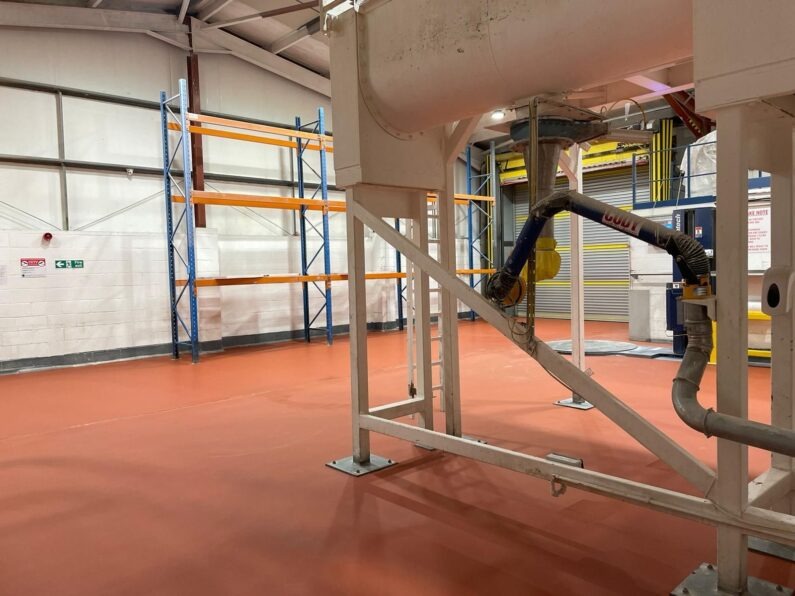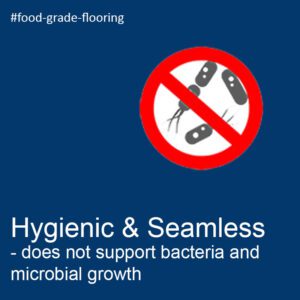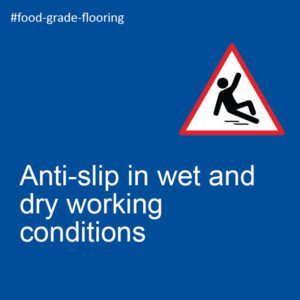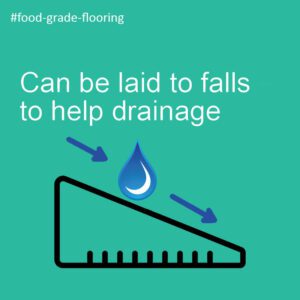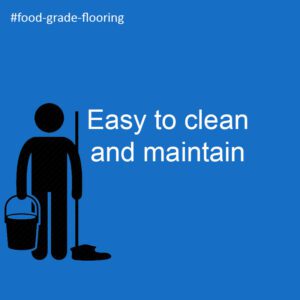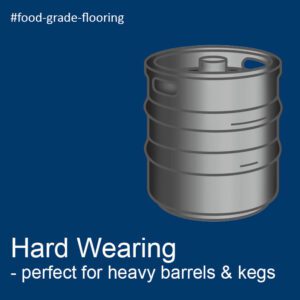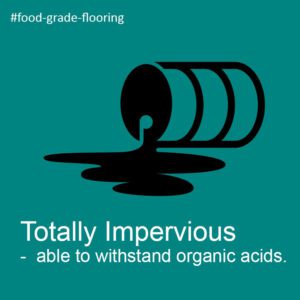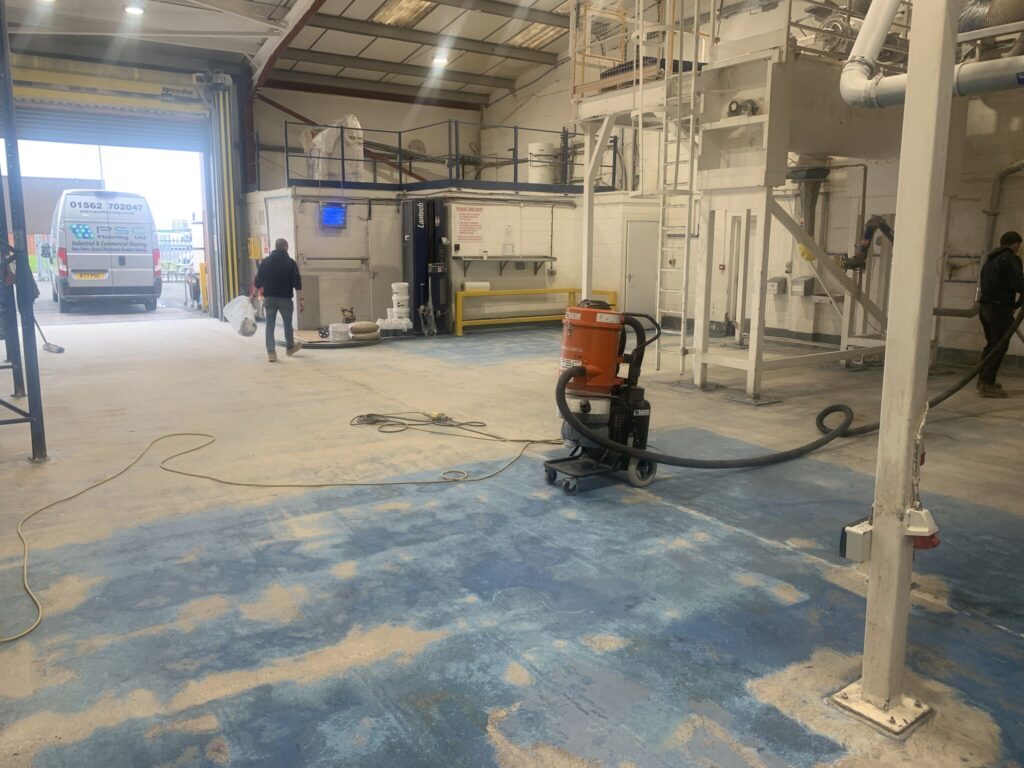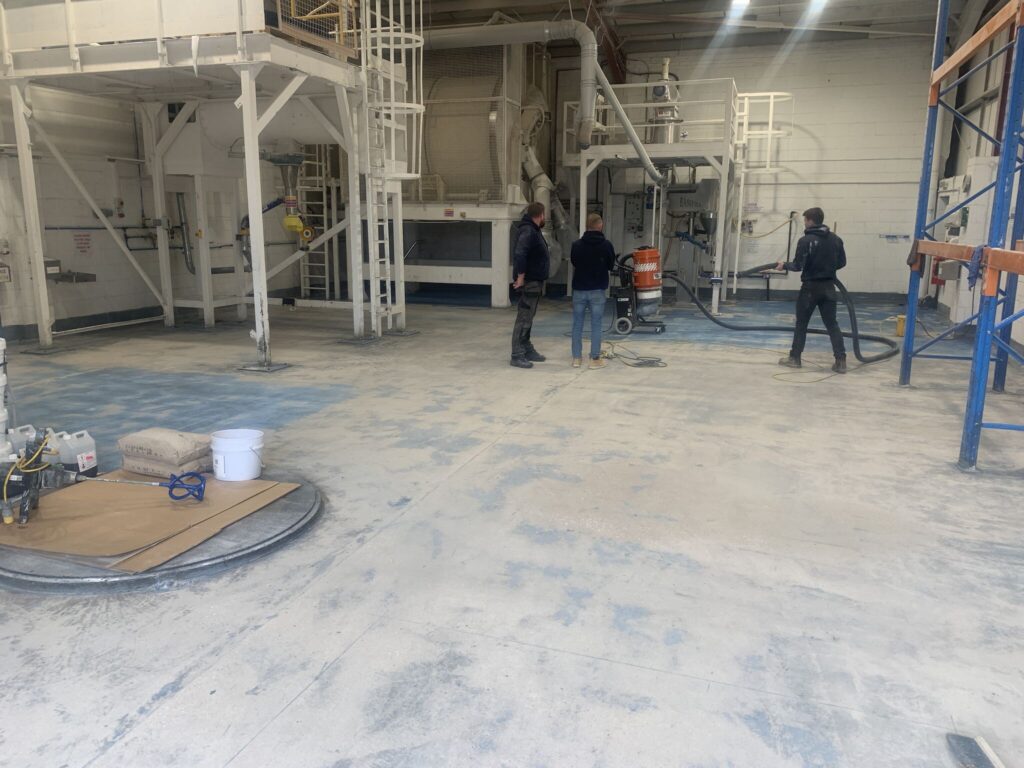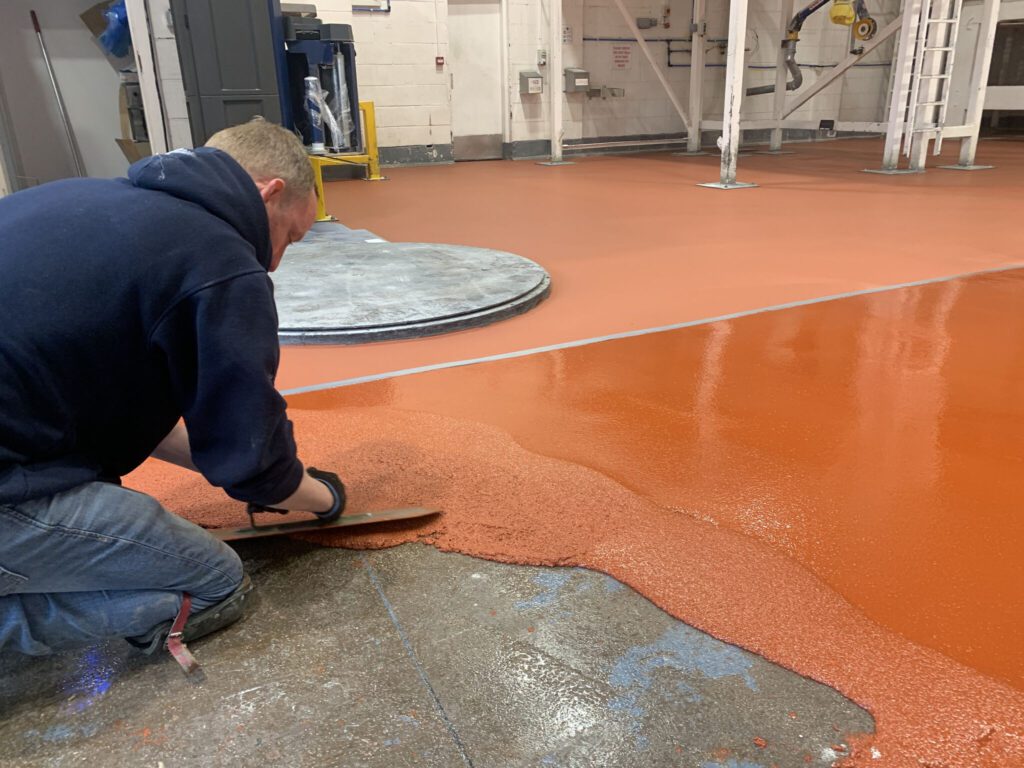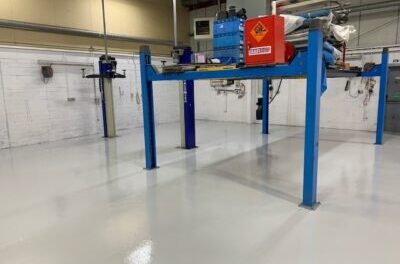The food processing and manufacturing industry has faced significant pressure over the past few years due to the Covid-19 pandemic. This situation has led to expansions and efficiency reconfigurations in production areas. Whether expanding or reconfiguring a space, selecting the correct flooring is crucial for safety in the food manufacturing and processing industry.
Importance of Hygiene in Food Processing Flooring
Cleaning is a top priority in food manufacture and processing, particularly for the Environmental Health Office (EHO). Manufacturers need hygienic and seamless flooring that does not support bacterial and microbial growth and is easy to clean. Ideally, the flooring should have a seamless connection between the floor and the wall or vertical surface, creating a unified surface that minimises areas where bacteria can hide.
Health and Safety Considerations
From a health and safety standpoint, it is essential to have anti-slip flooring in both wet and dry working conditions. Additionally, to aid drainage, the floor should be laid to falls toward a drain, making it easier to clean and minimising standing water in the working area.
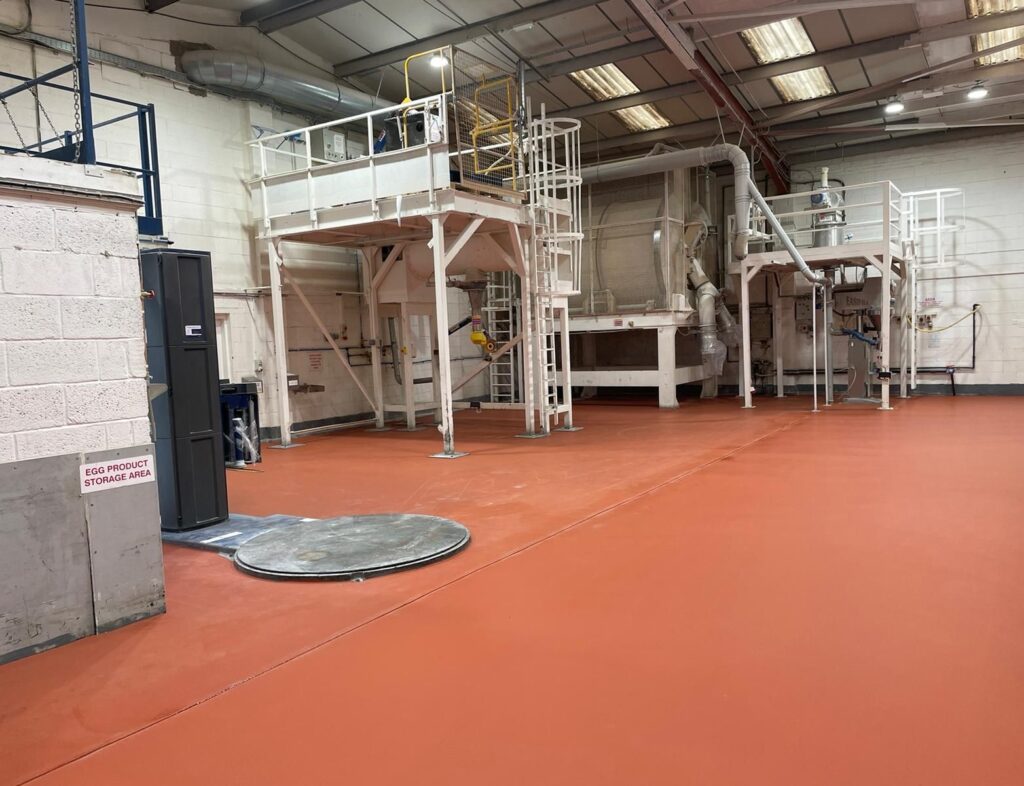
Longevity and Chemical Resistance
Longevity is a key factor in food processing and manufacturing floors. These floors are exposed to organic acids such as dairy fat, milk, and proteins, which can attack and corrode unprotected concrete. Therefore, the flooring must be chemically resistant, designed to be impervious and withstand organic acids.
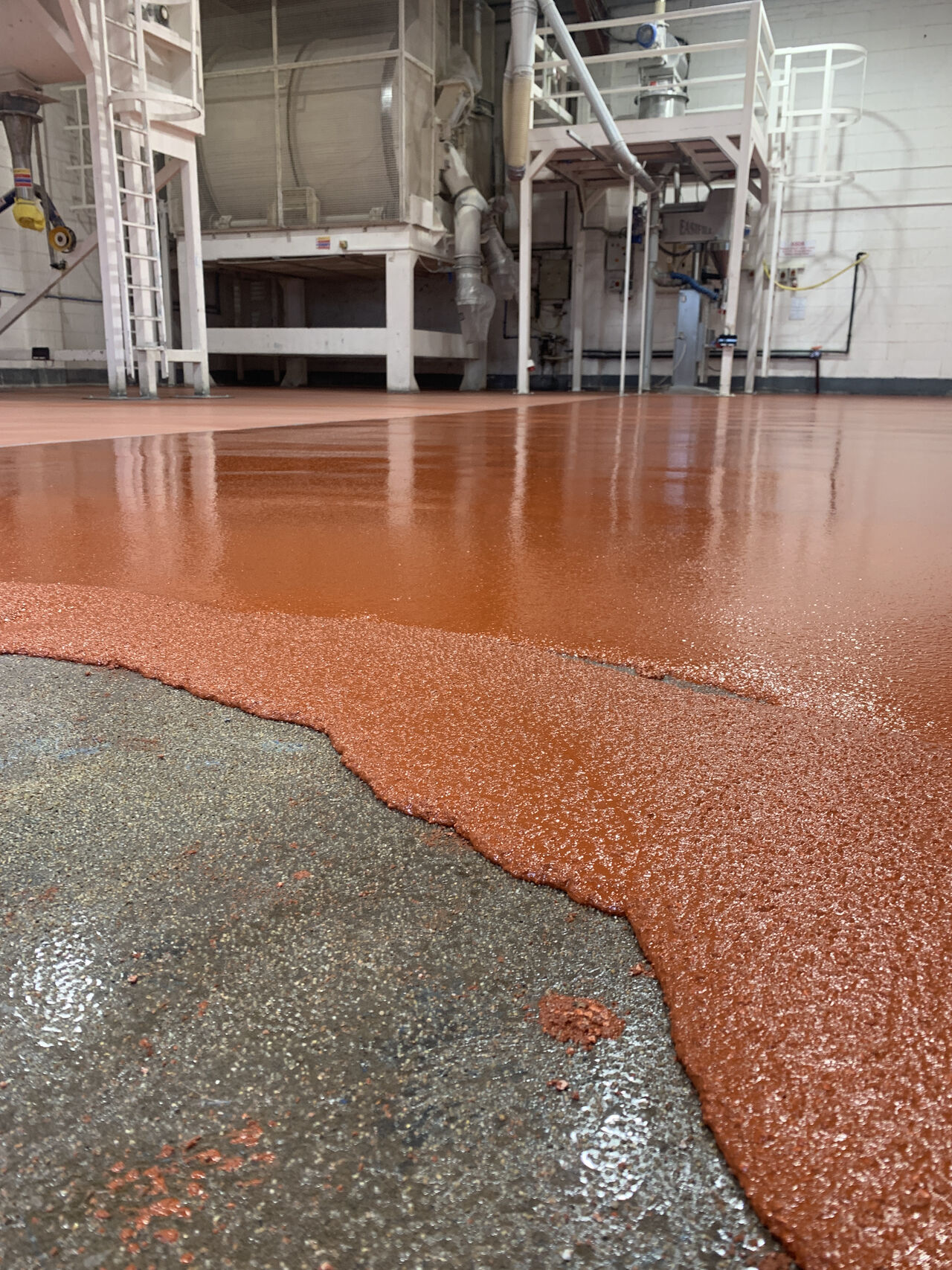
Why Choose Heavy-Duty Polyurethane RT or HF Screed?
The preferred flooring for the food processing and manufacturing sector is heavy-duty polyurethane RT or HF screed. Depending on requirements, these screeds can be laid at either 6mm or 9mm thick and can be complemented by coving.
Advantages of Heavy-Duty Polyurethane RT or HF Screeds:
- Chemically Resistant: Designed to be impervious and withstand organic acids.
- Easily Cleanable: Can be steam cleaned up to 120 degrees at 9mm thick.
- Hard-Wearing: Capable of withstanding heavy loads.
- Hygienic & Seamless: Does not support bacterial and microbial growth.
- Can Be Laid to Falls: Helps with drainage.
- Anti-Slip: Effective in both wet and dry working conditions.
- Complemented by Coving: Can include 100mm high coving to extend seamlessly up the walls.
The Right Choice – Food Grade Flooring
PSC Flooring recently provided a solution for LFI (UK) Ltd, a local firm needing an upgrade for their bagging area floor. The 220 square meter floor had failed floor paint, all of which needed removal before laying any new flooring system.
LFI produces dry food powders and mixes at its Worcestershire processing facility. They required food-grade flooring in their bagging area, and PSC recommended the Resdev Pumadur RT polyurethane screed, a system that meets health and safety standards. The flooring was laid to a nominal 6mm, the industry standard for food and drink manufacturing.
Preparation for 220 Square Meters of Food Grade Flooring
To prepare for the Food Grade Flooring system, we ground back the entire floor. We made 6mm x 6mm saw cut channels to the perimeter floor and door thresholds, then vacuumed the area clean.
We laid 220 square meters of Resdev Pumadur RT polyurethane screed in just four days, ensuring that the food processing facility was back up and running as quickly as possible.
Mr Darren Deitz of LFI Ltd Commented:
“The new food grade floor from PSC Flooring has completely transformed our bagging area. The area is now exactly what we need anti-slip, hard wearing and chemically resistant. We couldn’t be happier.”
Contact Us
For more information about our services and to discuss your specific flooring needs, contact PSC Flooring today. Call us at 01562 702047 to speak with a member of our experienced team.
If you enjoyed this blog, check out our previous post: Food Grade Flooring In Demand For A Growing Industry.
To read the original article please see here

